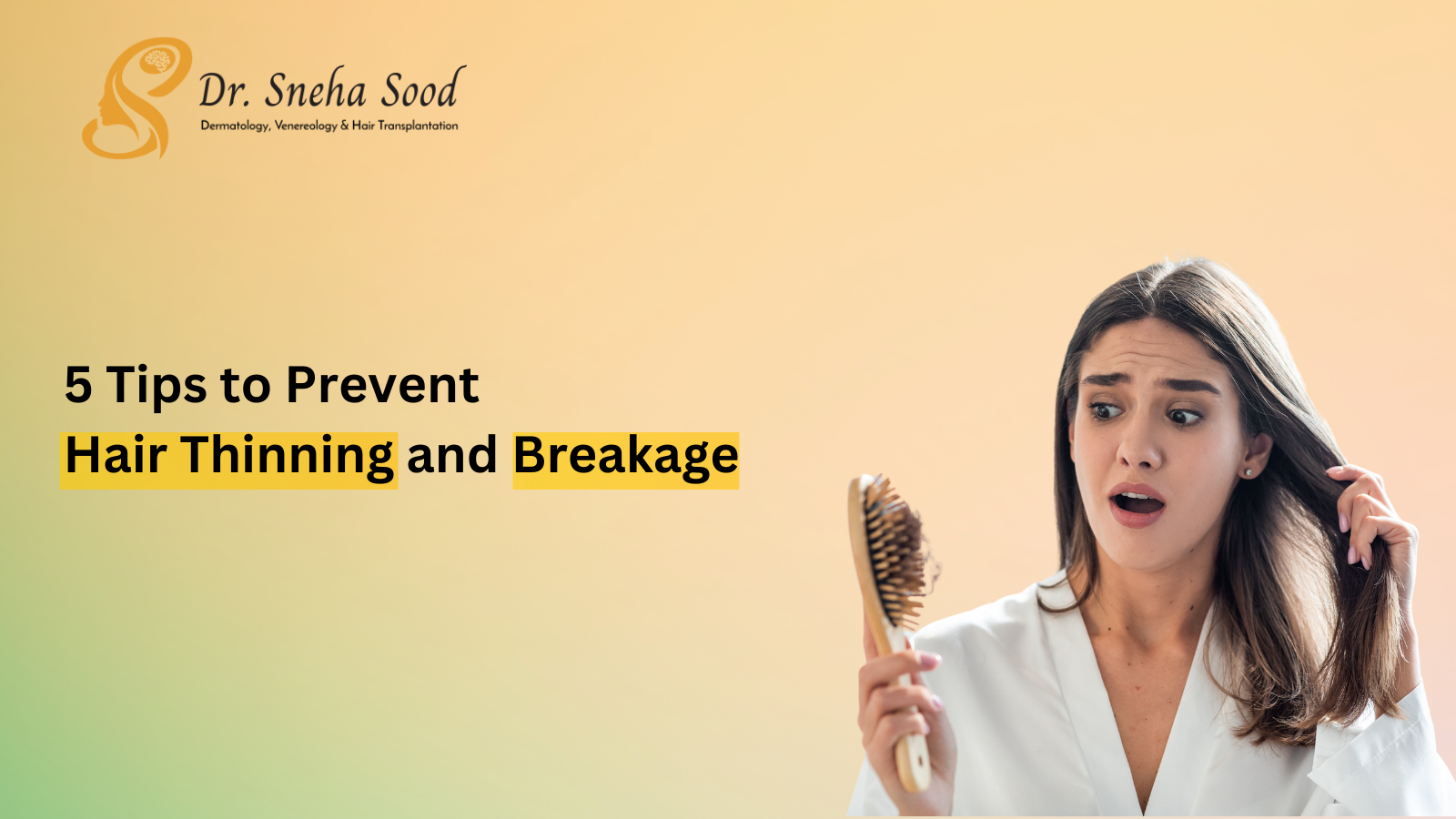



Hair thinning and breakage are common concerns that can affect both men and women at any age, leading to decreased hair volume, weakened strands, and, ultimately, a blow to self-confidence. Imagine noticing your once voluminous hair becoming noticeably thin and fragile after a stressful period. This scenario is all too familiar for many people, as hair thinning and breakage can happen to anyone, regardless of age or gender. Keeping your hair healthy isn't just about aesthetics—it also plays an essential role in how you feel about yourself. In this blog, Dr Sneha Sood shares her expert advice on how to prevent hair thinning and breakage, explaining the causes and providing actionable solutions to help maintain healthy, beautiful hair.
Hair thinning and hair breakage are two distinct conditions that can impact hair health. Hair thinning refers to reduced hair density, often resulting in visibly sparse hair. This occurs when hair follicles produce fewer strands or when existing hair becomes progressively finer. Hair breakage, on the other hand, involves the breaking of individual hair strands due to weakened structure, leading to shorter, uneven lengths.
Several factors contribute to hair thinning and breakage:
Following these tips will keep your hair healthy, strong, and less prone to thinning and breakage:
If you notice severe hair thinning or bald spots, it's time to consult a dermatologist or trichologist. Significant shedding or patchy hair loss may indicate underlying issues that require professional treatment. Similarly, if you experience itchiness, scaling, or redness on your scalp, it could signal conditions like scalp psoriasis or dermatitis, which require medical attention.
Additionally, if you've tried home care treatments without success and persistent breakage continues, it's advisable to seek professional help. Treatments like Platelet-Rich Plasma (PRP) therapy, topical treatments like Minoxidil, or customised hair care plans from a dermatologist can help address underlying problems and improve hair health.
Healthy hair is achievable with the proper care, proper nutrition, and stress management. By maintaining a balanced diet, using gentle hair care products, and paying attention to scalp health, you can effectively prevent hair thinning and breakage. Remember, if you're experiencing significant hair concerns, it's essential to consult a professional for the best course of action.
Are you struggling with hair thinning or breakage that just won't improve? Dr Sneha Sood offers expert consultations to provide you with personalised solutions for healthier, stronger hair. Book your appointment today and take the first step towards reclaiming your confidence.